Resources
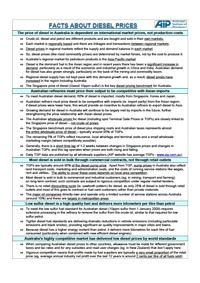
Date
Description
The AIP produces a simple set of facts to assist the community, commentators and other interested parties in understanding the key market and other factors influencing fuel prices in Australia.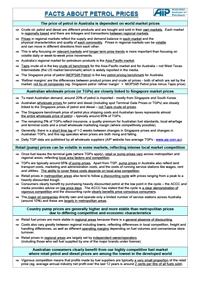
Date
Description
The AIP produces a simple set of facts to assist the community, commentators and other interested parties in understanding the key market and other factors influencing fuel prices in Australia.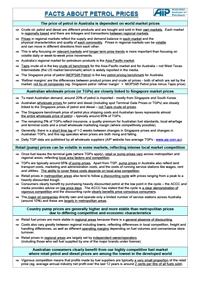
Date
Description
The price of petrol in Australia is dependent on world market prices Crude oil, petrol and diesel are bought and sold in their own markets. Each market is regionally based and there are linkages and transactions between regional markets. Prices in regional markets reflect the supply and…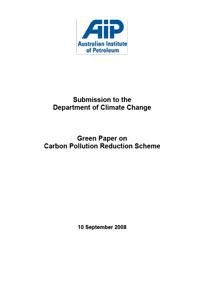
Date
Description
AIP and its member companies actively participate in public consultation processes on climate change. For example, AIP and its member companies are participating in the process of public consultation on national climate change policy development, including on the range of issues associated with…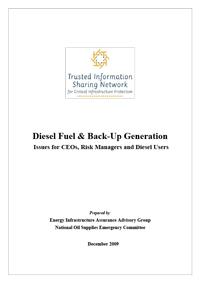
Date
Description
This paper has been developed by the Department of Resources, Energy and Tourism in consultation with NOSEC, the Energy Infrastructure Assurance Advisory Group (EIAAG) and AIP. The paper provides information and general advice on the issues organisations should be aware of to ensure that back-up…Date
Description
There is an extensive range of Federal, State/Territory and Local government regulations and legislation applying to refineries and businesses operating in the downstream petroleum industry. Some of the key regulations are outlined below. Formal Price Monitoring On 17 December 2007, under…Date
Description
Australia has robust emergency response plans and arrangements Industry and governments fully recognise the potential impacts of a severe national shortage of fuel supplies to business and consumers. Australia has robust response plans for managing a national liquid fuel emergency, which…Date
Description
Australia’s import, terminal and storage capacity for transport fuel has increased over time to meet growth in fuel demand There has been significant investment in new and expanded storage and terminal facilities over recent years to meet demand growth in key regional centres, as evidenced in…Date
Description
Subsidising domestic alternative fuel production is not necessary for energy security The reliable supply of conventional transport fuels (petrol, diesel and jet fuel) to the Australian market is underpinned by a diversity of supply options for petroleum products from domestic refiners and…Date
Description
Relying on shipping (for imports) does not increase security risks, and shipping lanes are not easily disrupted. Most countries are reliant on movements of petroleum (crude and product) within and between countries, and particularly so for Australia (in both an export and import sense).…